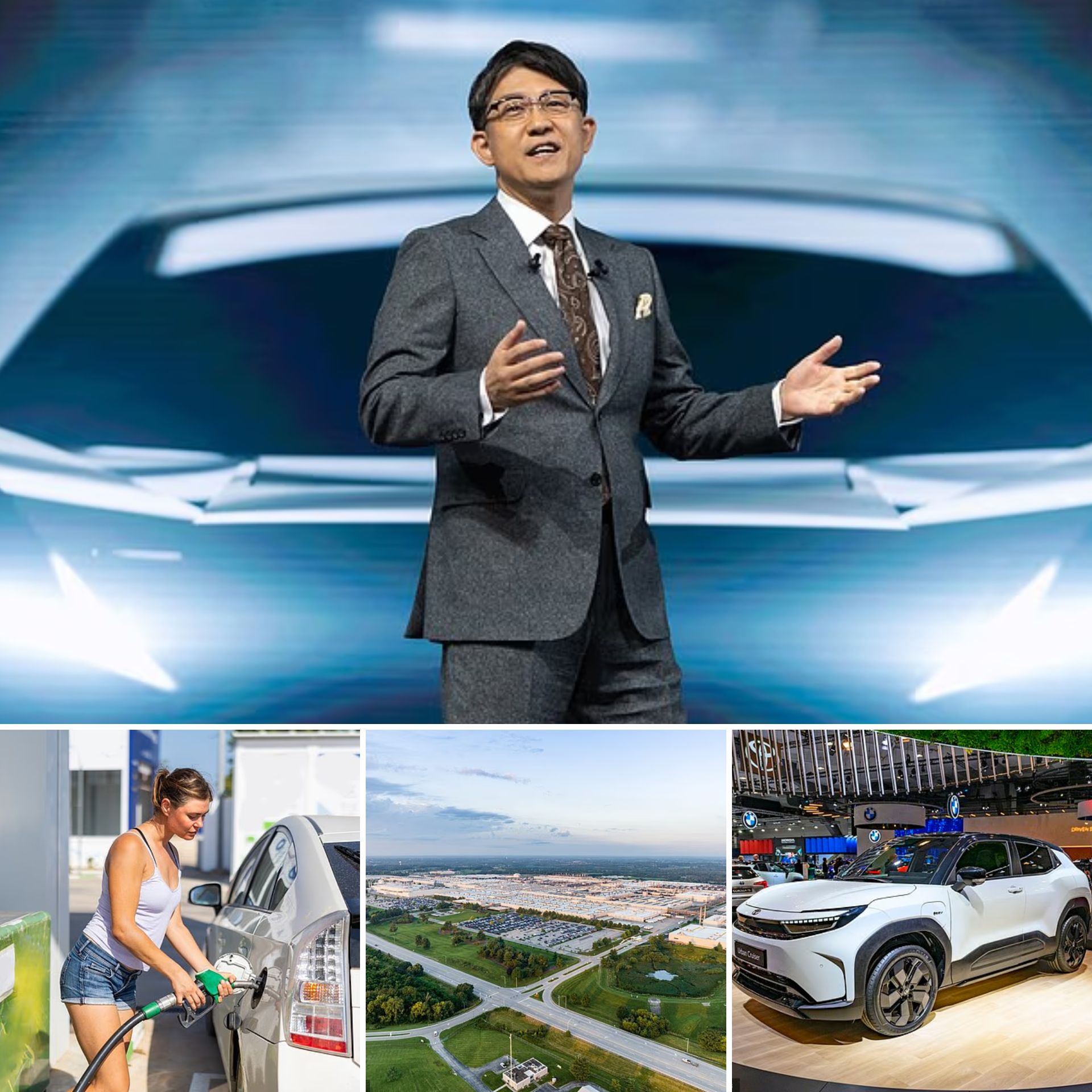Japanese car giant Toyota will build more of its vehicles at American plants.

Toyota, the world’s largest automaker, said two new EVs will be made in Georgetown, Kentucky.
Both SUVs — based on the best-selling RAV4 and the boxier Land Cruiser — will have three rows of seating.
The move comes as part of Toyota’s ongoing effort to shift manufacturing to the US and sidestep tariff-related cost increases.
It joins other major automakers like GM, Ford, Volkswagen, and Hyundai that are shifting their production plans.
In March, President Donald Trump imposed a 25 percent tariff on all foreign-made cars and their parts, hoping it would force carmakers to hire more American factory workers.
‘President Trump has had meetings with both domestic and foreign auto producers, and he’s committed to bringing back auto production to the US,’ Treasury Secretary Scott Bessent said in April.
‘So we want to give the automakers a path to do that, quickly, efficiently, and create as many jobs as possible.’
Some automakers have decided to move production to the US in response. GM announced a nearly $1billion plan to rejig a battery plant in Western New York into a V8 truck plant, while Honda said it’s building several cars in its Ohio factory.
BMW is also building more cars in the US.
But the tariff plans have triggered pricing alarm bells in the auto industry.
So far, multiple automakers have quietly rolled out thousand-dollar price hikes on cars across their lineups.
Ford tacked $2,000 onto the price of their Mexican-made cars in May. Subaru issued a 16 percent price hike on a base model for 2026. Volkswagen followed suit.
‘Business is not sustainable longer term without significant price increases,’ Mark Templin, Toyota’s chief operating officer for North America, said in May.
‘And the industry already has an affordability problem.’
Last month, the average consumer spent over $49,000 to roll a new vehicle off the lot.
The high pricing pushed thousands of drivers towards used cars. But even the secondhand market has a price problem: in August, the pre-owned vehicle market hit an inflation rate of 15 percent.
Car repair inflation also ticked up eight percent. That could hurt drivers who aren’t expecting to buy a new car by spiking insurance premiums.
‘Tariffs are going to drive up auto costs,’ Michael DeLong, a car insurance analyst at the Consumer Federation of America, told the Daily Mail in March.
‘It’s not going to be helpful to consumers. It would make auto costs increase for everyone.’
Meanwhile, Trump’s policies haven’t delivered the desired effects on federal jobs data.
In August, the US created only 22,000 positions, falling far short of the 75,000 contracts Wall Street expected.
The US lost 12,000 manufacturing jobs last month.
Meanwhile, some foreign automakers are rethinking their US investments after federal immigration officials raided Hyundai and LG’s newly constructed $7.6billion Georgia plant.
Agents filmed themselves entering the plant and detaining 475 South Korean engineers. The videos have set off a weeks-long firestorm between business policymakers in Washington and Seoul.